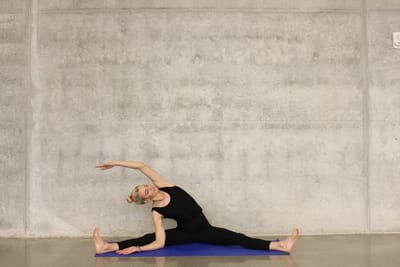Discover Something About Rotator Cuff Injuries and the Best Stretches for Them
Many have sustained rotator cuff injuries, but they haven’t given it a deeper thought on the best preventative mechanisms for these injuries. If your shoulder ever produced a popping sound when pushing some heavyweight items or working at the gym, it’s good to know that it didn’t just happen. If you are among those who love skiing down the slopes, it’s possible that your shoulder may land first in the snow. Some people also develop some sharp pain in their shoulder when playing tennis or any other friendly game. Whichever the case, the pain in your shoulder is as a result of a rotator cuff injury. Check out The Stretching Institute to get started.
Some people refer to this injury as shoulder tendinitis or rotator strain or tear. They all mean the same. The pain happens when the rotator cuff tendons or muscles develop strain, inflammation, or tear. Most people don’t know what causes the rotator cuff injury, and this means they also don’t know how it can be treated. The first cause of the rotator cuff injury is the general tear and wear, or what you may call degeneration. It’s good to know that the shoulder has a lot of tendons and that’s why it doesn’t receive much blood supply.
Moreover, the shoulder receives little nutrients since the blood supply is limited. For this reason, the shoulder is vulnerable or prone to degeneration that quickens aging. No wonder the elderly develop a lot of shoulder problems and complain a lot about them. It’s good to know that an injury on your shoulder can take longer to heal since the area doesn’t receive adequate nutrients and oxygen to boost recuperation. Excessive is the other main cause of shoulder injuries most people develop. Too much strain or force on your shoulder is dangerous, and it can lead to some serious shoulder injuries. Visit The Stretching Institute website for more details.
Weakness and pain are the two main causes of a rotator cuff injury. However, it’s good to know that these injuries can be avoided through some exercises or physical activities. You can use the rotator cuff stretches to boost the health of your shoulders and enhance healing. Doing a few shoulders stretches if good for you, but it’s not everything. You need to do several upper back, chest, and shoulder stretches also. Some of these stretches may subject your rotator cuff muscles to some stress if you don’t know how to do them properly. You should do stretches slowly and gently after you warm-up first and then proceed.
Read more at http://www.huffingtonpost.co.uk/entry/stretches-to-increase-flexibility_uk_58e4eee7e4b0d0b7e1669331?guccounter=1&guce_referrer=aHR0cHM6Ly93d3cuZ29vZ2xlLmNvbS8&guce_referrer_sig=AQAAAI4QZ4qsw0LJPq8BhuovQ6OKY-PCroqv2ouAeg15wUApndatvs3F09eidSDUCcVoguOd5bUK0BVK-xpVU_nteM6SOy62d58UZthbBnpzd4YqgveoH7mDgvqxA50URtHE8nc8eOEsCnj32yWvHAAd4zocrM0YaXYWwJmXAbI8hHe8.
Some people refer to this injury as shoulder tendinitis or rotator strain or tear. They all mean the same. The pain happens when the rotator cuff tendons or muscles develop strain, inflammation, or tear. Most people don’t know what causes the rotator cuff injury, and this means they also don’t know how it can be treated. The first cause of the rotator cuff injury is the general tear and wear, or what you may call degeneration. It’s good to know that the shoulder has a lot of tendons and that’s why it doesn’t receive much blood supply.
Moreover, the shoulder receives little nutrients since the blood supply is limited. For this reason, the shoulder is vulnerable or prone to degeneration that quickens aging. No wonder the elderly develop a lot of shoulder problems and complain a lot about them. It’s good to know that an injury on your shoulder can take longer to heal since the area doesn’t receive adequate nutrients and oxygen to boost recuperation. Excessive is the other main cause of shoulder injuries most people develop. Too much strain or force on your shoulder is dangerous, and it can lead to some serious shoulder injuries. Visit The Stretching Institute website for more details.
Weakness and pain are the two main causes of a rotator cuff injury. However, it’s good to know that these injuries can be avoided through some exercises or physical activities. You can use the rotator cuff stretches to boost the health of your shoulders and enhance healing. Doing a few shoulders stretches if good for you, but it’s not everything. You need to do several upper back, chest, and shoulder stretches also. Some of these stretches may subject your rotator cuff muscles to some stress if you don’t know how to do them properly. You should do stretches slowly and gently after you warm-up first and then proceed.
Read more at http://www.huffingtonpost.co.uk/entry/stretches-to-increase-flexibility_uk_58e4eee7e4b0d0b7e1669331?guccounter=1&guce_referrer=aHR0cHM6Ly93d3cuZ29vZ2xlLmNvbS8&guce_referrer_sig=AQAAAI4QZ4qsw0LJPq8BhuovQ6OKY-PCroqv2ouAeg15wUApndatvs3F09eidSDUCcVoguOd5bUK0BVK-xpVU_nteM6SOy62d58UZthbBnpzd4YqgveoH7mDgvqxA50URtHE8nc8eOEsCnj32yWvHAAd4zocrM0YaXYWwJmXAbI8hHe8.

